Sustainability Key Targets and Metrics
We align our sustainability activity to the UN Sustainable Development Goals and SASB Materiality Map.
Our focus areas
Contributing to Sustainable Development Goals
We have considered how our Vision and Purpose align with the SDGs and how we can support their delivery. We have identified eight of the targets across five goals where we can contribute to the their achievement. The table below lists them, alongside the relevant Sustainability Accounting Standards Board's Materiality Map® dimensions and the associated Group metrics.
Net Zero Targets

SBTi Targets
During 2023, the Group submitted new near-term carbon reduction targets covering Scope 1, 2 and 3 emissions to the Science Based Targets Initiative (‘SBTi’) in order to both obtain external validation of our targets and most critically, to ensure alignment with the Paris agreement of controlling the increase in global warming to below 1.5 degrees. The SBTi completed their validation process in January 2024 and the approved targets are as follows:
- Mobico Group PLC commits to reduce absolute Scope 1 and 2 GHG emissions 55% by 2033 from a 2022 base year.
- Mobico Group PLC commits to reduce absolute Scope 3 GHG emissions 33% by 2033 from a 2022 base year.
- The target boundary includes biogenic land-related emissions and removals from bioenergy livestocks.
-
Be the environmental leader
SDG
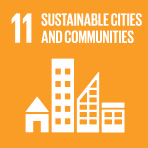
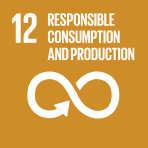
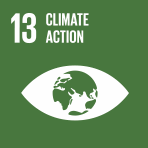
SASB
Air Quality/
GHG EmissionsSelected targets
Sustainable Cities and Communities
SDG 11
11.2 – as Most reliable11.6 By 2030, reduce the adverse per capita environmental impact of cities, included by paying special attention to air quality and municipal and other waste management.
Responsible Production and Consumption SDG 12
12.5 By 2030, substantially reduce waste generation through prevention, reduction, recycling and reuse.Climate Action SDG 13
13.2 Integrate climate change measures into national policies, strategies and planning.Key metrics
- Passenger numbers
- Absolute CO2 emissions (tCO2e)
- CO2/million passenger km
-
Have the most satisfied customers
SDG

SASB
Access & Affordability/
Quality & SafetySelected targets
Sustainable Cities and Communities
SDG 11
11.2 – as Most reliableKey metrics
- Passenger numbers
- Customer satisfaction score (CSATS)
- Net Promoter Score (NPS)
-
Be the most reliable
SDG

SASB
Access & Affordability
Selected targets
Sustainable Cities and Communities SDG 11
11.2 By 2030, provide access to safe, affordable, accessible and sustainable transport systems for all, improving road safety, notably by expanding public transport, with special attention to the needs of those in vulnerable situations, women, children, persons with disabilities and older persons.Key metrics
- Passenger numbers
- On-time performance
- Breakdowns
-
Be the safest
SDG
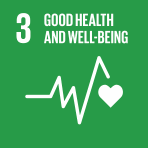
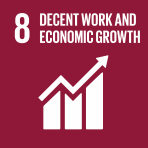

SASB
Quality & Safety/
Employee H&S/
Critical Incident
Risk ManagementSelected targets
Good Health and Wellbeing SDG 3
3.6 By 2020 halve the number of global deaths and injuries from road traffic accidents.Decent Work and Economic Growth SDG 8
8.8 Protect labour rights and promote safe and secure working environments for all workers, including migrant workers, in particular women migrants, and those in precarious employment.Sustainable Cities and Communities SDG 11
11.2 – as Most reliableKey metrics
- Zero responsible fatalities
- FWI/million miles
- Leading safety credential in each market
- Passenger numbers
-
Be the employer of choice
SDG

SASB
Labour Practices/
Employee H&SSelected targets
Decent Work and Economic Growth SDG 8
8.8 Protect labour rights and promote safe and secure working environments for all workers, including migrant workers, in particular women migrants, and those in precarious employment.
8.5 By 2030, achieve full and productive employment and decent work for all women and men, including for young people and persons with disabilities, and equal pay for work of equal value.Key metrics
- Commitment to real Living Wage (or 10% above national minimum wage where Living Wage does not exist)
- FWI/million miles
Being a responsible business
Materiality matrix
We have used the Sustainability Accounting Standards Board’s (SASB’s) Materiality Map®, to focus on the aspects most critical to us.
TCFD
The Task Force on Climate-related Financial Disclosures (TCFD), established by the Financial Stability Board (FSB), was set up to define how reporting could take account of climate-related issues. The Group incorporated the TCFD recommendations fully into reporting in 2023.
Stakeholder engagement
Our drive to be a trusted partner to all our stakeholders is rooted in our Purpose. We form relationships based on mutual understanding and respect and, by engaging meaningfully, we gain valuable insights which influence decision-making at every level of the business from the Board to local management teams. Acting on these insights helps us continuously improve what we offer to stakeholders, further reinforcing this virtuous circle.